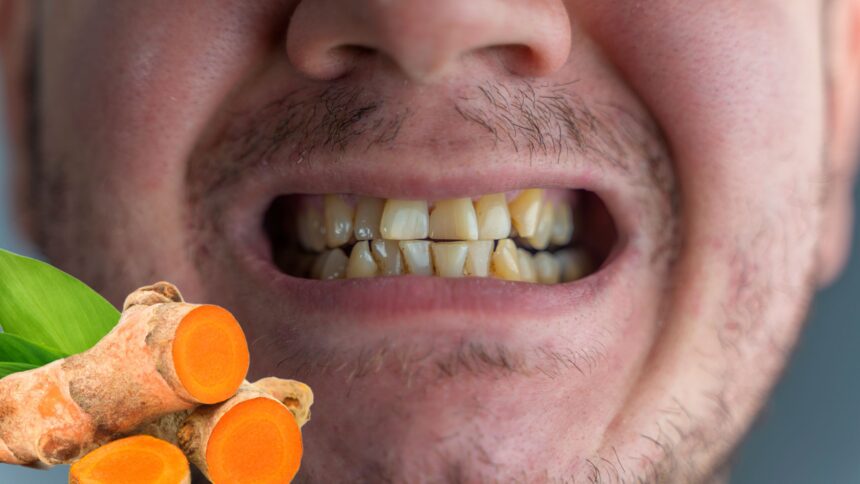Turmeric, the vibrant yellow spice widely used in many cuisines around the world, has gained significant attention for its potential health benefits. However, one common concern among turmeric enthusiasts is the potential for the spice to stain the teeth. In this article, we will explore the relationship between turmeric and tooth discoloration, providing a comprehensive understanding of this phenomenon.
Does Turmeric Stain the Teeth?
The simple answer is yes, turmeric can potentially stain teeth. The primary reason for this is the presence of curcumin, the active compound in turmeric that is responsible for its distinctive yellow-orange color. Curcumin is a natural pigment that can adhere to the surface of the teeth, leading to a yellow or brownish discoloration.
The degree of staining can vary depending on several factors, including the frequency and duration of turmeric consumption, the individual’s oral hygiene practices, and the specific properties of the individual’s teeth. Some people may be more susceptible to turmeric staining than others, particularly those with porous or discolored teeth.
Factors Influencing Turmeric Staining
Several factors can contribute to the likelihood and intensity of turmeric staining on the teeth:
- Frequency of Consumption: The more frequently an individual consumes turmeric, the higher the chances of the pigments accumulating on the tooth surface, leading to more noticeable staining.
- Amount Consumed: The greater the quantity of turmeric consumed, the more curcumin will be present to potentially adhere to the teeth.
- Oral Hygiene Practices: Individuals who maintain good oral hygiene, including regular brushing and flossing, are less likely to experience significant turmeric staining compared to those with poor oral hygiene.
- Tooth Enamel Condition: Individuals with porous or discolored tooth enamel may be more susceptible to turmeric staining, as the pigments can more easily penetrate the surface.
- Time Between Consumption and Oral Hygiene: The longer the duration between turmeric consumption and subsequent oral hygiene practices, the more time the pigments have to adhere to the teeth.
Mitigating Turmeric Staining
While turmeric staining can be a concern, there are several strategies individuals can employ to minimize or even prevent the discoloration of their teeth:
- Timely Oral Hygiene: Brushing and flossing shortly after consuming turmeric-containing foods or beverages can help remove the pigments before they have a chance to adhere to the tooth surface.
- Use of Baking Soda: Baking soda, a common household ingredient, can help neutralize the staining effects of turmeric. Mixing a small amount of baking soda with water and using it as a paste or mouthwash can be effective in removing turmeric stains.
- Oil Pulling: The practice of oil pulling, which involves swishing oil (such as coconut or sesame oil) in the mouth for several minutes, can help lift and remove turmeric stains from the teeth.
- Professional Dental Cleaning: Regular professional dental cleanings can help remove any stubborn turmeric stains that may have accumulated on the teeth over time.
- Avoidance or Moderation: For individuals who are highly susceptible to turmeric staining, or for whom the discoloration is a significant cosmetic concern, reducing the consumption of turmeric-containing foods and beverages may be a viable option.
Conclusion
While turmeric is a highly versatile and beneficial spice, it can potentially lead to tooth discoloration due to the presence of curcumin, its active pigment. By understanding the factors that contribute to turmeric staining and employing effective mitigation strategies, individuals can enjoy the health benefits of turmeric while maintaining a bright, stain-free smile. As with any dietary or oral hygiene practice, it is always advisable to consult with a healthcare professional for personalized advice and guidance.




